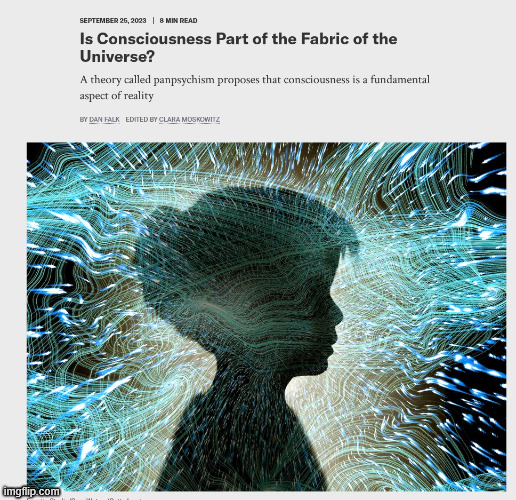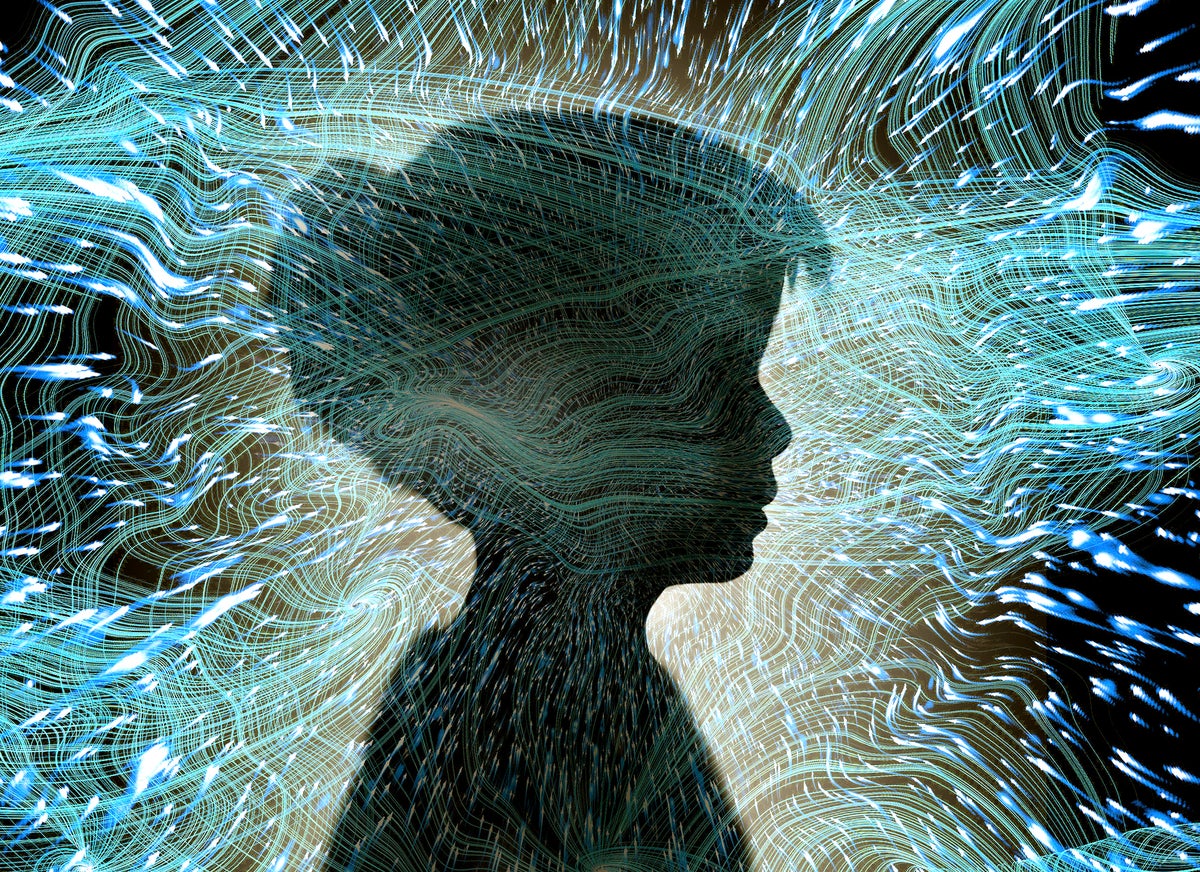Navigation
Install the app
How to install the app on iOS
Follow along with the video below to see how to install our site as a web app on your home screen.
Note: This feature may not be available in some browsers.
More options
Style variation
You are using an out of date browser. It may not display this or other websites correctly.
You should upgrade or use an alternative browser.
You should upgrade or use an alternative browser.
Zone1 How do you imagine eternal life to be like?
- Thread starter Mortimer
- Start date
rightwinger
Award Winning USMB Paid Messageboard Poster
- Aug 4, 2009
- 299,473
- 229,531
- 3,615
No, most stuff is insignificantMy point is everything matters or nothing matters. I favor the philosophy that everything matters. What have you ever created that did not matter to you?
norwegen
Diamond Member
Ah, eternity is spent in hell, then.My legacy is USMB
My posts will last forever
rightwinger
Award Winning USMB Paid Messageboard Poster
- Aug 4, 2009
- 299,473
- 229,531
- 3,615
My posts will haunt people for generationsAh, eternity is spent in hell, then.
odanny
Diamond Member
Hell is not the same as it used to be.Ah, eternity is spent in hell, then.
For one thing, it's not as hot as it used to be, HVAC was not around 2,000 years ago, and there are all kinds of activities now, there is even pickleball.
BreezeWood
VIP Member
- Oct 26, 2011
- 19,523
- 1,608
- 85
Jesus says whoever believes in him will have eternal life:
they can not get anything right in that book, bribery is their motivation - to follow them, the crucifiers.
what jesus claimed is the opportunity for eternal life - may divergences in the heavens earn your way, become more enlightened or the consequences can be - giving up and falling as a spent leaf from the tree of life.
- Sep 16, 2012
- 67,618
- 63,602
- 3,605


Is Consciousness Part of the Fabric of the Universe?
A theory called panpsychism proposes that consciousness is a fundamental aspect of reality
Panpsychism - Wikipedia
- Sep 16, 2012
- 67,618
- 63,602
- 3,605
Sean Carroll & Philip Goff Debate 'Is Consciousness Fundamental?'
Oct 2, 202305:16 Consciousness and physical reality present the ancient challenge of how to unify scientific data (public data) and our private experiences (private data). Private data includes feelings, experiences, and sensory perceptions like color and taste.
07:36 The Mind-Body problem explores how Consciousness and the physical world connect. There are three main solutions: physicalism (physical world is fundamental), panpsychism (Consciousness is fundamental), and dualism (both are fundamental).
09:56 Scientific experiments can't distinguish between these options, leaving it as a philosophical challenge. Panpsychism asserts that Consciousness is fundamental, with the physical world emerging from underlying Consciousness.
13:54 Physicalism faces a conceptual mismatch between the quantitative language of physics and the qualitative aspects of Consciousness, making it difficult to explain experiences in purely physical terms.
18:47 Russell-inspired panpsychism posits that Conscious entities interact, giving rise to mathematical structures, which are what we observe as physics. Panpsychism successfully explains the physical world in terms of Consciousness.
22:51 Physicalism remains a strong approach, considering our excellent understanding of the physical world. Altering our fundamental understanding of physical reality due to challenges in understanding Consciousness might not be the best approach.
26:45 Sean Carroll discusses levels of explanation in Consciousness, ranging from fundamental quantum fields to human experiences and behaviors.
27:27 Different levels of vocabulary (physical, biological, and human-scale) describing Consciousness are compatible and do not conflict with each other.
28:23 While Sean Carroll admits not fully understanding Consciousness, he is confident that any explanation will fit within the framework of physicalism, emphasizing the importance of mapping Consciousness in physical terms.
29:33 Sean Carroll illustrates the relationship between thoughts and brain activity, emphasizing the ongoing research efforts to describe Consciousness in physical terms.
30:29 Sean Carroll addresses the "satisfaction gap," highlighting the dissatisfaction some have with physicalist explanations of Consciousness. He contrasts this with the panpsychist approach.
31:55 Carroll critiques the "knowledge argument," challenging the idea that the qualitative experience of Consciousness cannot be explained within physicalism. He asserts that the argument does not undermine physicalism.
33:19 Sean Carroll outlines the core Theory in physics, emphasizing our deep understanding of fundamental particles and forces. He explains the limits of potential new particles' relevance to Consciousness and biological processes.
36:44 Carroll presents the "satisfaction gap" dilemma for panpsychists, highlighting the challenge of reconciling their views with the well-established core Theory of physics.
37:24 Sean Carroll challenges panpsychists to either modify the core Theory of physics to fit their views or accept that Consciousness does not require such modification.
42:55 Carroll emphasizes that Consciousness is intricately tied to behavior. He asserts that any theory of Consciousness must account for its impact on human behavior and experiences.
43:21 Sean Carroll believes Consciousness is complex and challenging to understand but contends that changing the entire universe's framework is unnecessary. He advocates for working within the physicalist paradigm while exploring Consciousness further.
50:25 Panpsychism views physics as a computational structure (software) realized in Consciousness (hardware), akin to how software can run on different devices like iPhone and laptop.
51:06 Panpsychism posits Consciousness as a fundamental layer underlying physics, not necessarily changing physics but offering a deeper understanding of reality.
53:55 Panpsychism does not alter physics; it proposes a more fundamental layer beneath physics, challenging the scientistic view that only experimentally provable aspects matter.
56:28 Panpsychism provides a coherent explanation linking physical reality to underlying facts about Consciousness, presenting a viable solution to the Mind-Body problem.
59:01 Panpsychism argues for the importance of integrating our immediate awareness of Consciousness with scientific knowledge, emphasizing the need for philosophical exploration beyond experiments.
01:00:12 Panpsychism challenges the fundamental dilemma: Does it change core physics? The debate hinges on whether panpsychist views necessitate altering the core Theory of physics.
01:05:14 Panpsychism asserts that explaining Consciousness involves understanding both qualitative experiences and their neural correlates, highlighting the challenge of defining what constitutes an explanation.
01
 12 Panpsychism questions the notion of the "hard problem of Consciousness," suggesting that as scientific understanding advances, the hard problem might dissolve without a distinct solution.
12 Panpsychism questions the notion of the "hard problem of Consciousness," suggesting that as scientific understanding advances, the hard problem might dissolve without a distinct solution.01:13:18 The knowledge argument is about the incompleteness of materialism. Mary, a neuroscientist, learns new information about experiencing red, indicating materialism's limitations.
01
 47 Panpsychism aims to explain physical reality in terms of consciousness, not just explain consciousness itself. It offers an alternative to materialism in understanding reality.
47 Panpsychism aims to explain physical reality in terms of consciousness, not just explain consciousness itself. It offers an alternative to materialism in understanding reality.01:17:39 Consciousness is a unique case; it's privately known, not publicly observable. The challenge is to integrate the reality of consciousness with the reality of the physical world.
01
 43 The debate highlights implicit assumptions in understanding the fundamental nature of reality. Different views exist due to the complexity of the problem; there's room for differing interpretations.
43 The debate highlights implicit assumptions in understanding the fundamental nature of reality. Different views exist due to the complexity of the problem; there's room for differing interpretations.01:31:15 The introspective data on consciousness, although subject to interpretation, provides a real, rich understanding of subjective experiences, challenging the notion of Consciousness as purely inferential.
01:36:19 Philip introduces the example of Fred, a character who sees two distinct colors despite others seeing one, highlighting a gap in our understanding of consciousness and physicalism.
01:37:31 The existence of creatures like the mantis shrimp challenges our understanding of consciousness, indicating something missing in the current neurological explanations.
01:38:48 Descriptions of experiences such as seeing red are relational and subjective, making it difficult to provide objective answers within panpsychism or physicalism.
01:41:57 The zombie argument challenges the concept of consciousness by proposing beings that behave identically to humans but lack subjective experience, raising questions about the nature of consciousness.
01
 55 Panpsychism emphasizes continuity in nature, suggesting that consciousness evolves from simpler forms, offering a Copernican view of consciousness in the universe.
55 Panpsychism emphasizes continuity in nature, suggesting that consciousness evolves from simpler forms, offering a Copernican view of consciousness in the universe.01
 11 The combination problem in panpsychism explores how smaller conscious entities combine to form complex consciousness, a challenge that researchers are actively engaging with.
11 The combination problem in panpsychism explores how smaller conscious entities combine to form complex consciousness, a challenge that researchers are actively engaging with.01:52:29 Sean asserts that he feels physicalism is true, aligning his inner experiences with his understanding of the physical world, highlighting the complexity of consciousness as a key challenge.
01:54:48 Philip discusses the limits of physicalism, emphasizing the need for an intelligible story explaining the emergence of subjective qualities from quantitative physical processes. The debate extends to other non-scientific data like value and mathematics.
norwegen
Diamond Member
Yea, but all they have to eat is deviled eggs.Hell is not the same as it used to be.
For one thing, it's not as hot as it used to be, HVAC was not around 2,000 years ago, and there are all kinds of activities now, there is even pickleball.
Similar threads
- Replies
- 8
- Views
- 294
- Replies
- 78
- Views
- 934
New Topics
-
Donald Trump presides over a pretty well-behaved country.
- Started by Etymology gaslight
- Replies: 0
-
Trump rejected Israeli plan to kill Iran's supreme leader, official says
- Started by shockedcanadian
- Replies: 3
-
-
-
